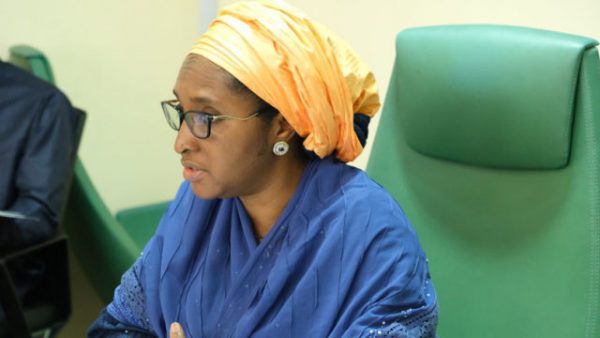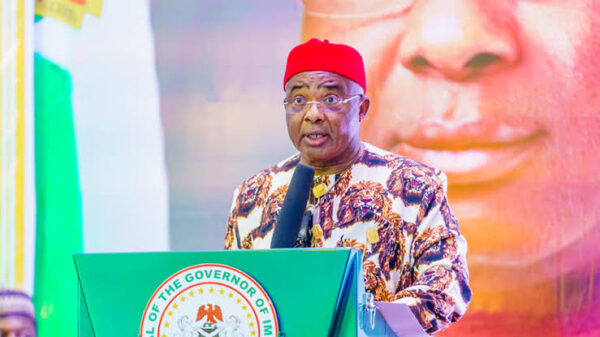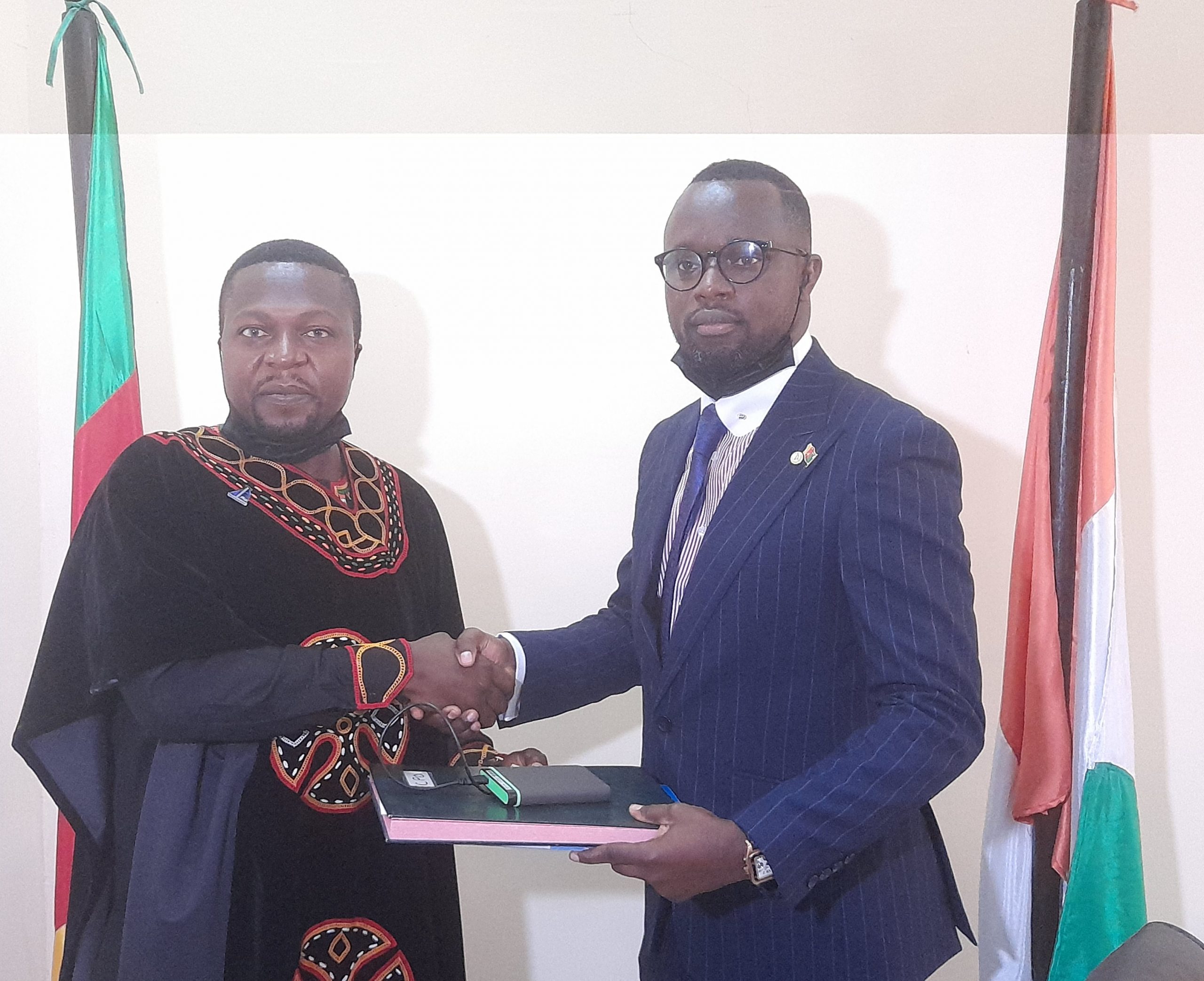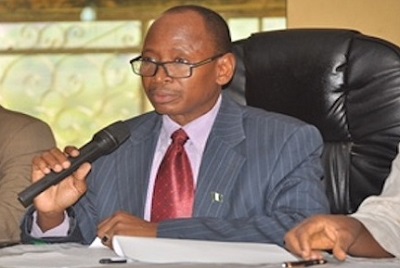FG moves to recover N614b loan from states

• NNPC fails to remit N77.92b after $15.37b oil, gas sales
• Heads will roll over $9b judgment against Nigeria, vows Malami
• Wants executive orders to close gaps in anti-graft war
The Federal Government has apparently begun moves to recover the N614 billion budget support loan it gave to 35 states of the federation.
Minister of Finance, Budget and National Planning Zainab Ahmed gave the indication yesterday while briefing State House correspondents following the National Economic Council (NEC) meeting in Abuja.
She said the council resolved to set up a committee made up of members of the Nigeria Governors’ Forum (NGF) who would partner with the Central Bank of Nigeria (CBN) and the Ministry of Finance to draw modalities for repayment.
“The Minister of Finance briefed NEC on the progress of the facility, detailing how the Federal Government has made a total of over N614billion available to 35 states being N17.5billion each,” she said.Ahmed further disclosed that the balance in the stabilisation account and natural resources development fund as at August 20, 2019, was $95.329million.
The Federal Government had released a total of N1.64trillion to states and local governments between 2015 and 2017 as part of measures to stabilise the polity.This came as the Nigeria Extractive Industries Transparency Initiative (NEITI) revealed that the Nigerian National Petroleum Corporation (NNPC) failed to remit about N77.92billion to the federation account in 2017.
A report on that year’s sale of crude oil and gas released in Abuja yesterday showed that although the total crude oil production was 692 million barrels, only 240.9 million barrels (representing 35 per cent of the total production) was for the federation.
The report, a pilot study that focuses exclusively and extensively on the sale of Nigeria’s share of crude oil and gas, shows that total revenue from the sale of the federation’s share for that year totalled $14.5billion (crude oil) and $1.32billion (gas).
“The sum of N77.92billion was under-remitted by NNPC to the federation account from domestic crude allocation in 2017. NNPC acknowledges the under-remittance and states that there is an ongoing reconciliation to net off the N77.92billion,” a section of the 136-page report notes.
According to the report, NNPC deducted N297billion from earnings from the domestic crude allocation as costs and losses, including N141.6billion for under-recovery on petroleum products; N25billion for crude and product losses; and N130.4billion for pipeline repairs and maintenance.
It indicates that the federation’s crude went to 29 destinations in 2017, the top five being: India, 41.3 million barrels; USA, 30.6 million; local refineries, 26.5 million barrels; Netherlands, 22.9 million barrels; and Spain, 21 million barrels.
NEITI’s Executive Secretary Waziri Adio said the report was undertaken in furtherance of the recent decision of the global Extractive Industries Transparency Initiative (EITI) to add commodity-trading transparency to its scope of coverage through stand-alone and in-depth reports.He disclosed that the objective of the report is to ensure adequate returns to governments, increase competition and efficiency in commodity trading, and ensure greater public scrutiny of resultant revenues.
“Resource-rich countries receive shares of minerals produced in their territories as equity shares or as in-kind payments, and these minerals are usually sold directly or indirectly to commodity traders through state-owned enterprises. However, the process and details of these sales are mostly shrouded in secrecy, even when more than half of the revenues from the extractive sector come from these sales. This is why the EITI resolved to beam more light on commodity trading. Nigeria is one of the five EITI-implementing countries selected to pilot this enhanced focus,” Adio said.
Meanwhile, the newly reappointed Attorney General of the Federation and Minister of Justice Abubakar Malami yesterday vowed that the Federal Government will deal decisively with persons involved in the award of the contract that led to a $9billion fine awarded against the Federal Republic of Nigeria by a British Court.
Justice Butcher had on August 16 ruled that an Irish firm, Process and Industrial Development Limited (P&lD), had the right to seize 20 per cent assets of Nigeria’s foreign reserves worth £7.4 billion or $9 billion.While addressing staff of the Ministry of Justice, Malami described the judgment as the “consequences of the underhand dealings of the past administration.”
He said: “It may interest you to know that the dispute that led to the arbitration between the Federal Republic of Nigeria and P&ID, which consequently resulted in the said court ruling, arose from a 20-year Gas Supply Processing Agreement (GSPA) purportedly entered with P&ID by the past administration in 2010, which contract P&ID never performed as agreed.
“That being said, it must be placed on record that the Federal Government strongly views with serious concerns the underhand manner by which the negotiation, signing and formation of the contract was carried out by some vested interests in the past administration in connivance with their local and international conspirators all in a bid to inflict grave economic adversity on the Federal Republic of Nigeria and the good people of Nigeria.”
He said: “As a government that has the mandate of the people and their interests at heart, we shall not fold our arms and allow this injustice to go unpunished. All efforts, actions and steps shall be taken to bring to book all private individuals, corporate entities and government officials home or abroad and past or present that played direct and indirect roles in the conception, negotiation, signing, formation as well as prosecution of the purported agreement.”
Malami further disclosed that plans are underway for activation of the provisions of Section 15 of the Money Laundering (Prohibition) Act, 2011 (As Amended) against private individuals and corporate entities culpable of concealing, disguising, converting, transferring, hiding, removing from the shore of Nigeria, acquiring, using, retaining or taking possession or control of any fund or property they knowingly or reasonably ought to have known to have formed part of the proceeds of an unlawful act.
He said: “As bad news to the rogues within our financial system, in the next four years, the Federal Ministry of Justice in collaboration with anti-corruption agencies shall be beaming anti-corruption searchlight on the financial institutions (F1s) and Non Designated Financial Institutions (DNFIs).”
According to him, this is targeted at “making them pay dearly for the dastardly role they have played and are still playing in encouraging and deepening corruption in Nigeria. From arms procurement fraud, INEC bribery case, to Diezani’s case, and several others, quantitative data available to the Federal Government abundantly shows that financial institutions are directly involved in most of the major corruption cases investigated by the Economic and Financial Crimes Commission (EFCC) and Independent Corrupt Practices and other Related Offences Commission (ICPC) from 2015 till date.”Malami added: “Where necessary, the ministry shall initiate necessary executive orders to close apparent gaps in the anti-corruption initiatives currently in place in Nigeria.”
The Guardian








